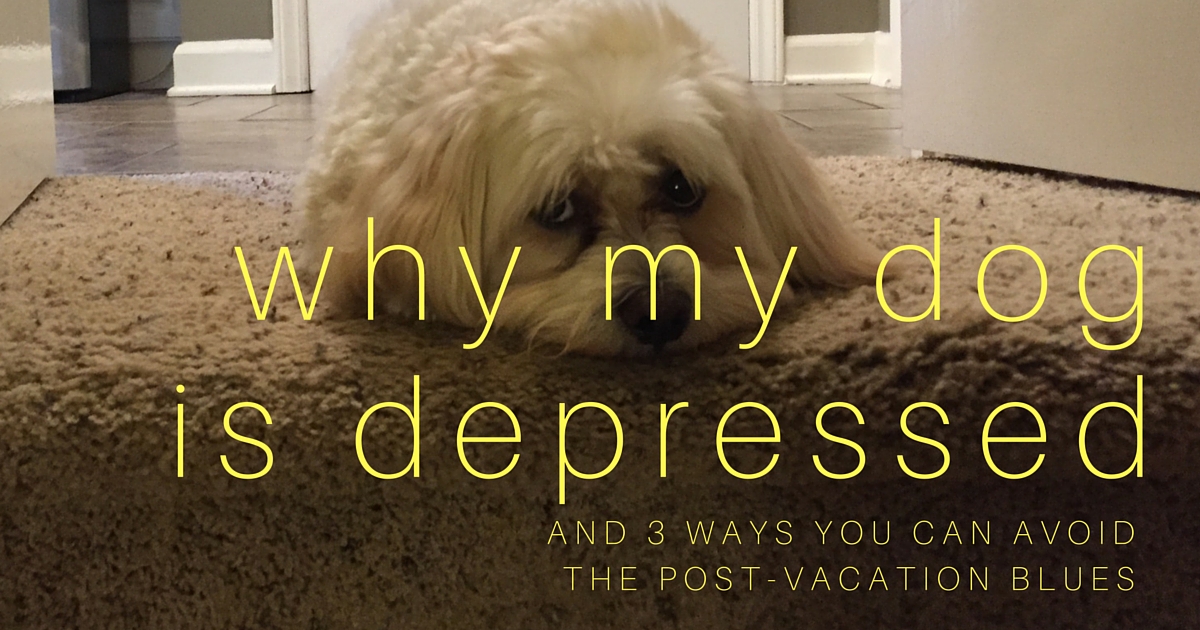
Our family took a week and half vacation recently to Cooperstown, NY. It was a fun getaway that involved a lot of baseball in that wonderful part of the world. As we made the long drive home, each family member talked about how good it would be to get home, sleep in our own bed, and see our dog Jack, who stayed with my parents while we were gone.
Since we picked up Jack, he hasn’t been himself. Almost a week after vacation, he’s still moping around the house, barely eating, and he just seems kind of lethargic. He’s not rushing to the door when we get home and instead of joining me for breakfast in the mornings, he just lays on the sofa.
I mentioned Jack’s behavior to a friend who’s a vet and learned that our dog is depressed. Now that I think of it, doesn’t he look kind of sad in that picture?
Doggie depression (yes, that’s a term) happens for some of the same reasons that cause us upright mammals to get down. One of the biggest contributors is change, which makes us feel out of step and perhaps out of control. People and pets alike like rhythm, routine, and stability. Sure, too much of the same thing can sometimes make us feel like we’re in a rut, but change upsets our demeanor and can downgrade our mood. Even a good change such as a vacation can have a depressing effect. We higher life forms struggle with depression in ways very similar to man’s best friend.
So what can we do when the fun is over and our return to the real world gets us down? If you’re suffering from post-vacation blues, try these three tips that I’ve learned from some of my coaching psychologist friends and coaching clients:
- Get busy. Sometimes if feels like we need to rest when we return from vacation, but the contrast between a fun-filled getaway and a dull return-to-reality can be stark. Sitting around with not much to do isn’t refreshing, it’s boring. As one of my psychologist friends says, a healthy distraction is often the best cure to mild depression. So get busy. Find a project to complete or engage in a hobby that keeps you occupied and gives you a sense of accomplishment. You can even take up a new hobby or relationship (see #3).
- Be grateful. When you look back upon your vacation, it can be tempting to feel a pang of sadness that it’s over. In fact, researchers have shown that vacations often fail to have the positive impact we hope because immediately upon returning we’re sad that it’s over. It’s the contrast the kills us (not literally, I hope). It turns out that how we think about the past matters a great deal. The choice we have is to view the past with regret or with gratitude. Sharing stories and recalling the fun experiences with a grateful attitude can pull the positivity from the vacation forward into the present and give our disposition a boost.
- Get a fresh start. Vacations and similar life events create a pause in our normal way of living, which can allow us to hit the reset button when we return. The days when things are still not yet settled can be the perfect time to start exercising, shift your eating habits, establish a morning quiet time, or infuse some healthier patterns in your important relationship. Don’t just wait for the old routine to re-establish itself, be proactive and use post-vacation time to upgrade life in some way.
Hopefully you’ll have a great vacation this summer (or sometime soon). When you do, don’t be surprised if your first days back bring on something similar to Jack’s doggie depression. When that happens, try these three blues busters and make the most of that post-vacation period.
As for me, I need to stop typing and take Jack for a walk. I think it will do us both some good.


